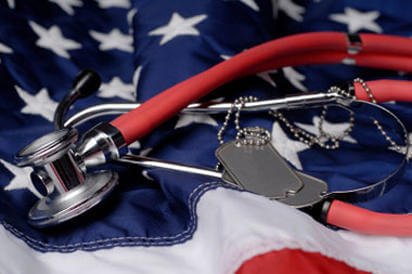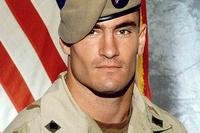Tricare officials have done an about face on a plan to limit active-duty coverage for a specific type of Autism therapy. The policy, set to go into effect July 25, will now only apply to military retirees. Active duty enrollees will continue to receive coverage under the current rules.
An email sent from Tricare to those who had signed-up for coverage updates via Tricare's website did not give a reason for the sudden change of plans.
"Contrary to information provided to you earlier about pending changes to Autism services, the Department of Defense is making no changes for active duty family members seeking autism services," the email said.
"We understand, of course, that there's a lot of anxiety in the community of interest around autism about suspected changes that would adversely affect their care," said Dr. Jonathan Woodson, the assistant secretary of defense for health affairs and director of Tricare management activity. "I will say to the autism community, we apologize for that up front, but that is the nature of the constraints we've been given."
The new policy would have altered a set of 2007 coverage rules for an autism treatment known as "applied behavior analysis" (ABA) for all Tricare users.
Under the current Tricare ABA therapy policy, active duty users can receive up to $36,000 of therapy a year as long as the provider can annually justify its need. Parents pay a cost share of between $25 and $250 per month based on pay grade.
The new policy, which will still apply to retirees under a new ABA Pilot program, requires autistic children to take a specific standardized test every six months to measure for "objective progress." It also requires a special waiver for children over 16-years-old and a second waiver for those needing therapy for more than two years. A failure to receive the waivers could result in canceled care.
Retirees will also be subject to a new cost share of 10 percent of the total price of therapy – up to $3,600 a year -- regardless of income.
About 8,500 active duty families have autistic children, Woodson said. In 2012, about 6,000 of those received some autism related benefits. He said about 3,600 autistic children are enrolled in the retiree health care program.
Autism parents, activists, and therapists had raised concerns about the policy's new requirements. They said the test Tricare plans to require for measuring progress was not designed for that purpose and would be difficult to obtain thanks to a provider shortage.
The parents also said the new age and years of care waiver requirements ignored the fact that most autistic children require ABA therapy continue throughout childhood.
The coverage policy governing ABA coverage posted to Tricare's website had not been updated with the change as of July 18. Tricare officials were unable to provide information on when or if it would be updated.
While Woodson would not speak to why Tricare decided to halt the roll-out to active duty users, parents and autism advocates say it was likely because of the public outcry against the policy. Several hundred angry parents and caregivers, for example, left questions and comments about the program on Tricare's Facebook page. Several petitions and call to action days against the policy were also organized.
"We so appreciate that our leadership at the Pentagon … has heard the outcry of tens of thousands of military families," said Jeremy Hilton, a military autism activist whose daughter is treated with ABA through Tricare. "We are optimistic that future policy decisions involving our children will be more carefully thought through."
Autism experts, activist and parents, however, were still concerned that the new policy will continue to apply to military retiree users under the ABA pilot program.
"While this is definitely progress, we still have significant concerns with the ABA Pilot policy," said Karen Driscoll, a Marine Corps spouse and a associate director of government affairs and military relations at Autism Speaks. "We encourage Tricare to work with stakeholders including medical specialists, autism experts, service provider and family organizations to ensure final policies provide appropriate access to care and align with clinical practice guidelines."
But commenters on several social media pages dedicated to the discussion of autism and Tricare took a more personal approach.
"We need to keep fighting," Andrea Scott-Thomason noted in an online discussion thread. "As I see my husband's retirement coming soon and with two kids on the spectrum, it still scares me."






























